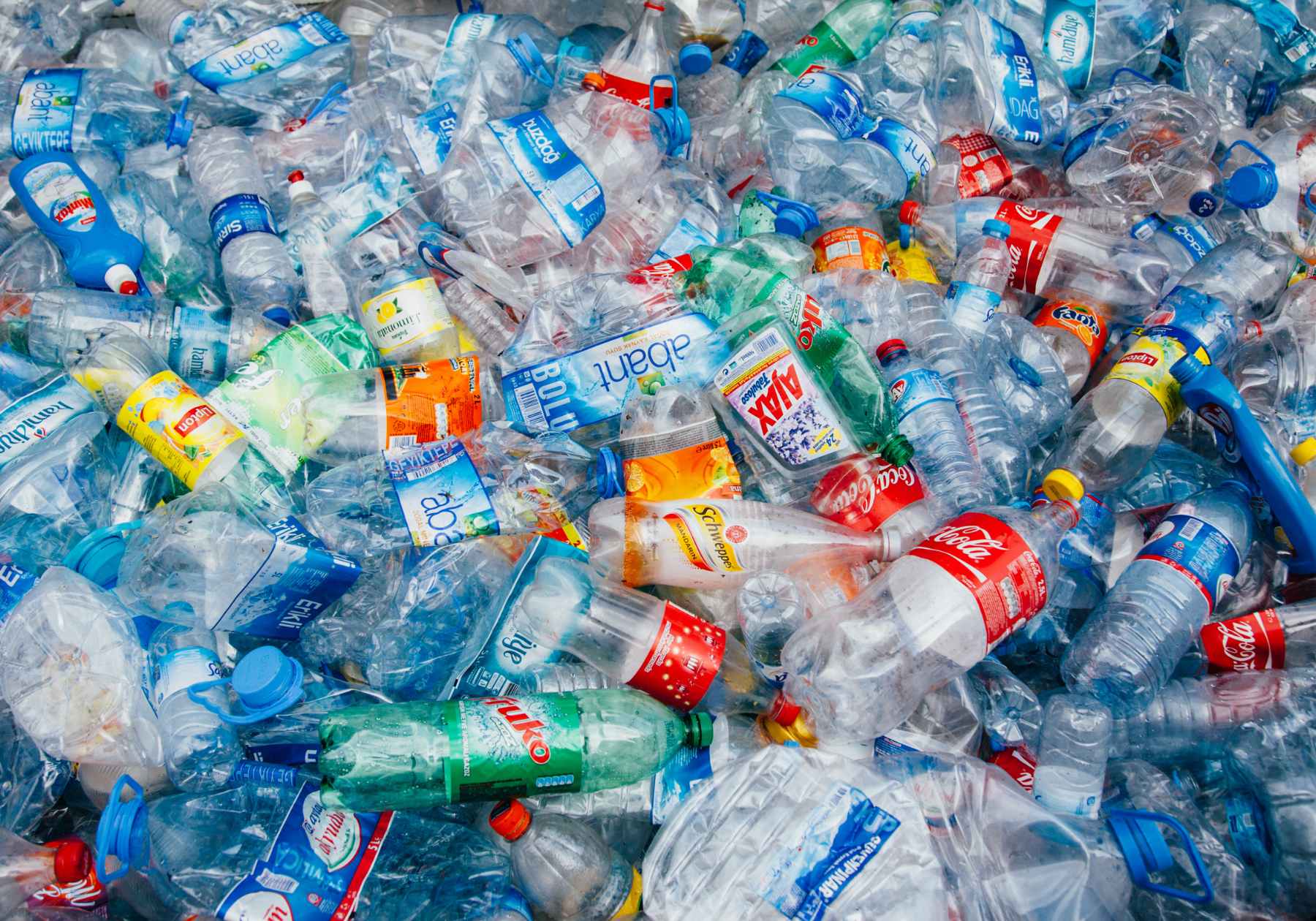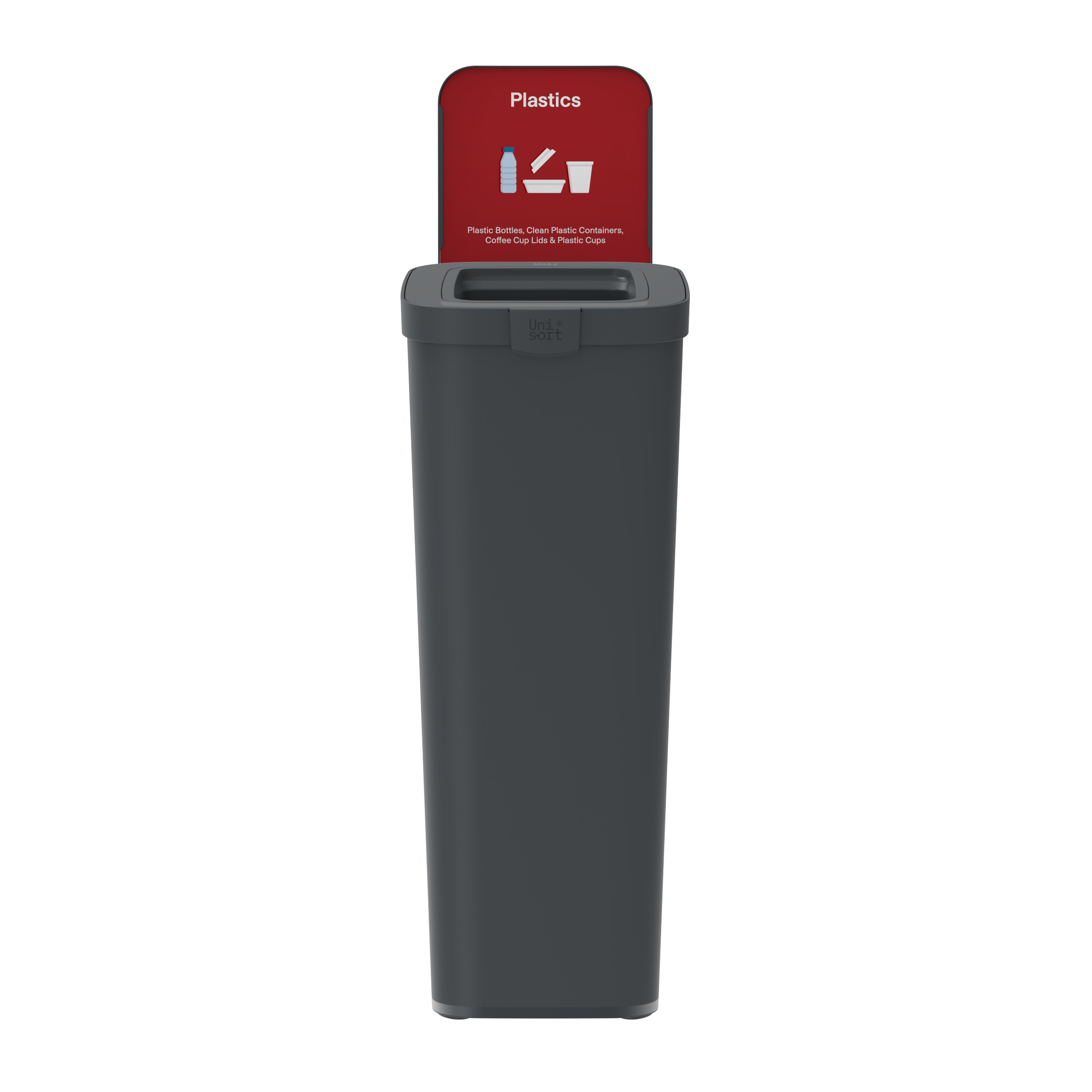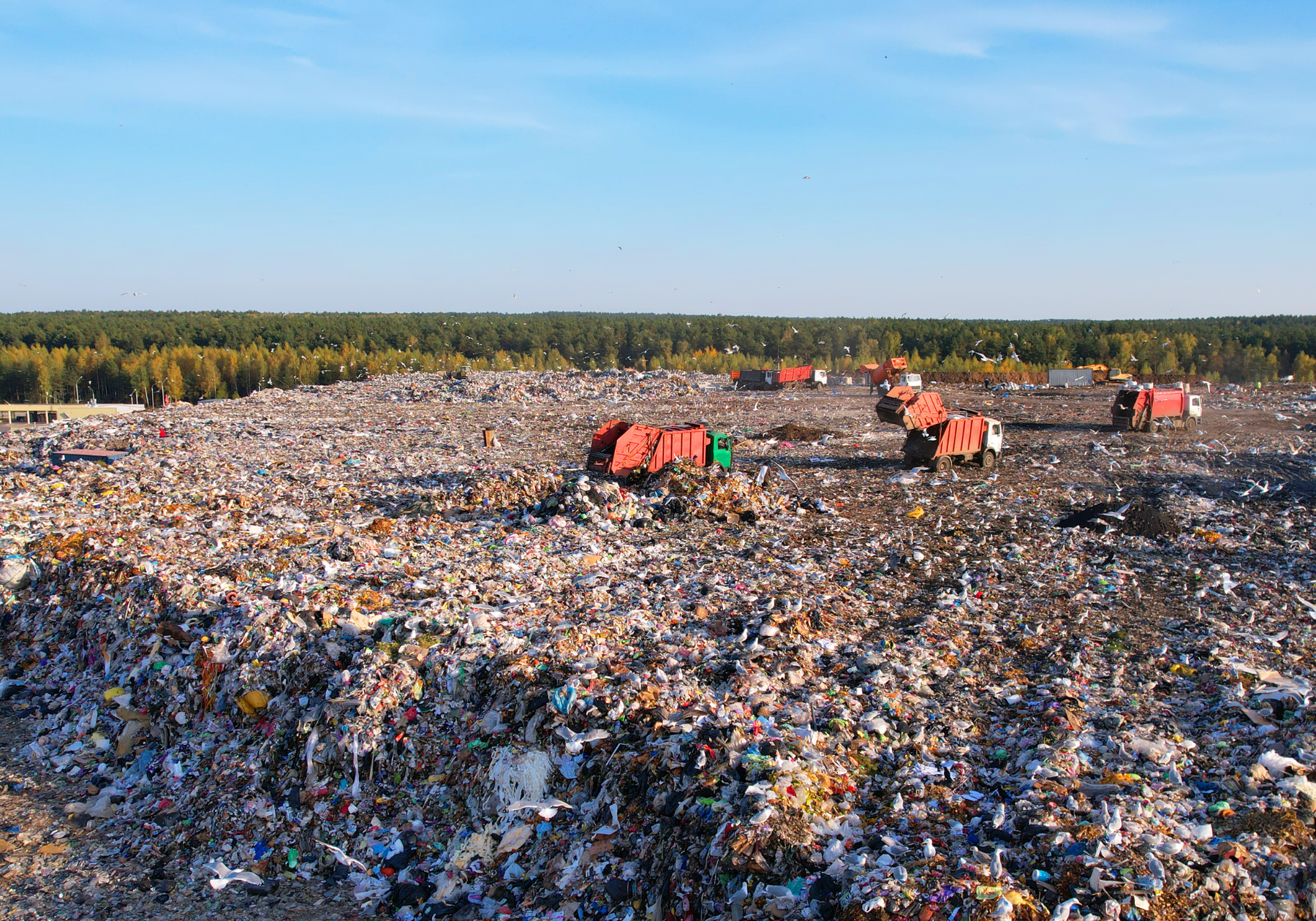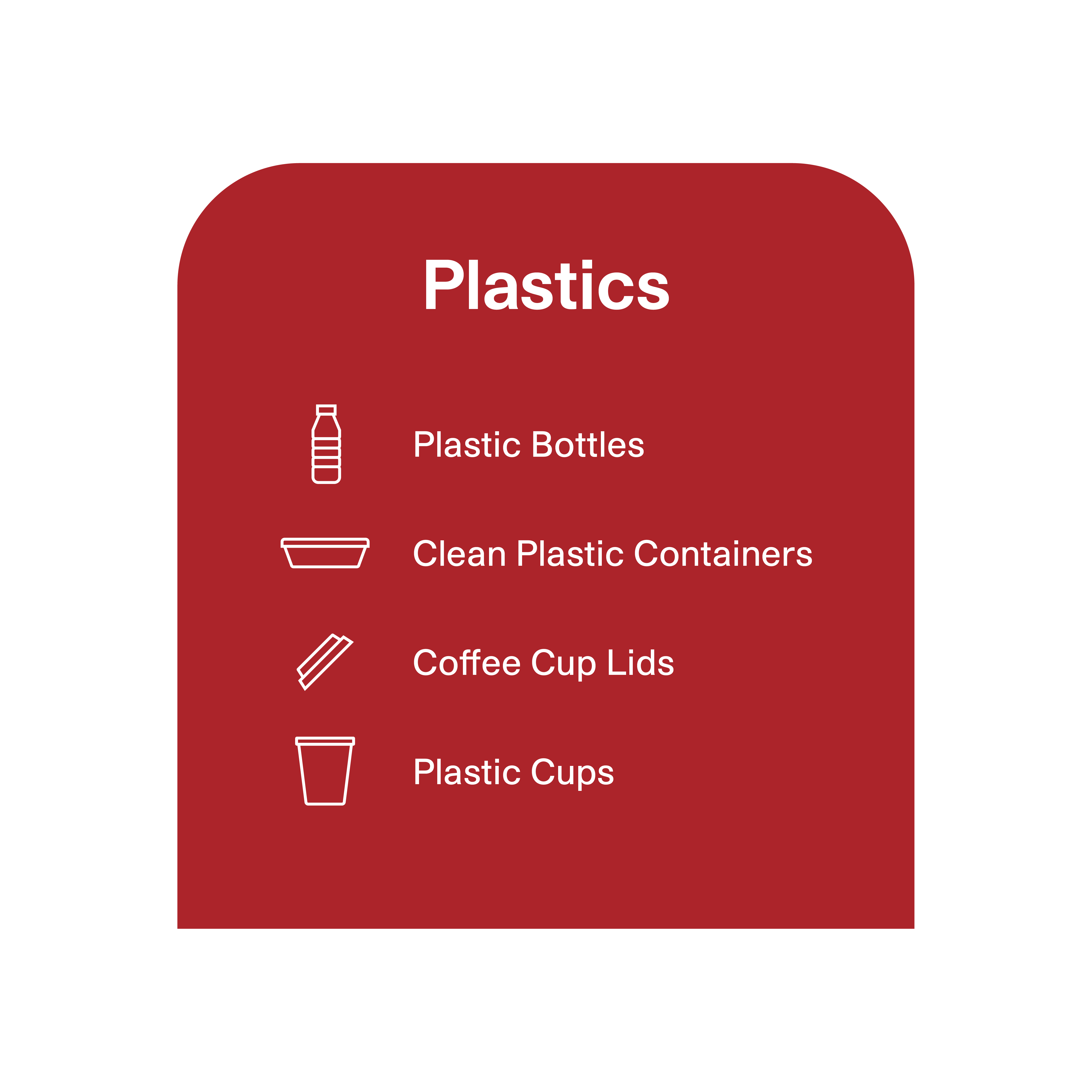Plastic waste is a massive pollution issue in the UK, with 65% coming from UK businesses.
The government is increasing regulatory pressure and setting environmental targets to encourage better plastic recycling, especially of plastic bottles.
In the UK, 61% of all plastic bottles are recycled, but this could be even higher if businesses take action. Businesses can achieve better recycling by adopting more sustainable practices and focusing on driving behavioural change towards better waste separation in the workplace.
The Importance of Plastic Bottle Recycling for UK Businesses
Plastic bottles are usually made from PET or HDPE, two relatively easy-to-recycle plastics.
It’s good to mention that up to 100% of PET and HDPE packaging (including bottles) can be made from recycled plastic and can be re-recycled over and over. Recycling these plastics reduces the need for raw materials, conserving natural resources and lowering carbon emissions. However, the issue is that great quantities of plastic bottles still end up in landfills or incineration, causing further environmental issues and increase CO2…
Every year UK consumers go through an estimated around 14 billion plastic drink bottles. Also, even though 86% of plastic packaging is recovered, only 49% is successfully recycled. This gap stresses the need for businesses to adopt more effective recycling systems, as they contribute significantly to plastic waste pollution. It only takes a strong sustainability strategy and the right staff engagement for businesses to reduce waste created in the first place, increase recycling rates, reduce costs, and improve their public image.
The Deposit Return Scheme for drinks containers, set to be introduced in the UK in 2025, will encourage consumers and businesses to participate more actively in recycling. The scheme will place a small deposit on bottles and will include reverse vending machines, hosted by the retailers who sell the drinks, where people can return their bottles and receive their deposit back promoting a circular economy and reducing waste. Once the programme is fully operational, the target is to gather more than 85% of recyclable beverage containers.
Why is Plastic Waste an Issue?
Plastic waste is a global issue when huge amounts of it aren’t recycled and end up as litter or in landfills which can be harmful to our planet, including the environment and wildlife…
The biggest issues it causes are:
Environmental Damage
Plastics can take hundreds of years to decompose, and during this time, they often break down into harmful microplastics that pollute our ecosystems and oceans. 81% of post-consumer plastic is recovered, but the remaining 19% contributes to the growing plastic pollution crisis.
Greenhouse Gas Emissions
Plastic production from raw materials is highly energy-intensive and relies heavily on fossil fuels. When plastic is improperly disposed of, it ends up in landfills, contributing to methane emissions or goes to incineration which increases CO2.
Recycle plastic bottles to help lower greenhouse gas emissions to reduce the demand for virgin plastic production and make a difference!
Resource Consumption
The production of plastics requires extensive amounts of raw materials, water, and energy. Recycling plastic helps conserve these resources and makes businesses more sustainable.
Best Practices for Recycling Plastic in Businesses
Businesses need to provide proper education and resources for efficient recycling at the point of disposal and contamination-free recyclables.
Provide Clearly Labelled Recycling Stations
Businesses can use internal recycling stations designated for plastic bottles and other plastic packaging. Clearly labelled recycling stations like the Unisort Climate Recycling Station can help avoid confusion and increase your business’s recycling rates.
If you currently have outdated waste bins that you don’t know how to dispose of, consider our Used Bin Takeback & Recycling service, a hassle-free upgrade where we collect your old recycling waste bins when delivering your new ones and ensure the old bins are recycled correctly.
Educate Your Workforce
For staff and managers to engage with a company’s recycling efforts they need proper recycling engagement and education. Ongoing education about the importance of proper recycling practices is necessary to ensure that everyone meets a business’s minimum recycling standards. Businesses can get started with employee training by participating in our Workplace Recycling Engagement Training Sessions to increase engagement with workplace recycling practices.
Limit Single-Use Plastics
A great way to start is to reduce reliance on single-use plastic bottles by offering alternatives such as refillable water stations and promoting reusable bottles.
Manufacturers could adopt more sustainable practices by providing incentives to correctly recycle your plastic bottles or produce more eco-friendly bottles and reduce the amount of plastic packaging.
Conduct Waste Audits
As a responsible business it’s important to perform waste & recycling audits regularly to help identify gaps in your recycling efforts and find ways to reduce plastic waste further.
How is Plastic Recycled?
Reducing plastic waste is fundamental as part of the UK’s strategy to transition to a circular economy.
The aim is to keep materials like plastic in use for as long as possible by recycling them back into the production cycle. This approach aligns with the Environment Act’s target to halve residual waste per person by 2042.
The Reuse-Repair-Recycle-Remanufacture of plastic products can help businesses contribute to this circular economy model, reducing waste and conserving resources.
Recycling plastic bottles in the UK starts with collection. As an individual business you can add multiple recycling stations across your workspace to ensure you avoid plastic, coming from your business, ending up in landfills or going to incineration. Here are the most innovative indoor and outdoor recycling stations to increase your recycling rates.
It’s good to know that 99% of local authorities offer recycling facilities.
The process of plastic recycling…
Once collected, the plastic is sorted by type, usually PET or HDPE, and cleaned of any remaining contaminants. The plastic is then shredded into small flakes, which are melted down and formed into pellets. These pellets are used to manufacture new products, such as new plastic bottles, packaging materials, or even textiles.
What are the Benefits of Plastic Bottle Recycling for Businesses?
Proper plastic recycling reduces the volume of waste sent to landfills or incineration, saving businesses money on disposal fees. Also, recycling is generally less expensive than disposing as general waste that goes to landfill or incineration.
Consumers prioritise businesses with strong sustainability practices. Committing to recycling can improve a company’s reputation and attract eco-conscious customers.
Also, UK businesses ensure compliance with the most recent recycling regulations and reduce the risk of financial penalties.
UK Laws and Schemes for Plastic Waste Reduction
The UK government is doing great efforts at introducing several policies to tackle plastic and general waste pollution:
Since April 2022, businesses that manufacture or import plastic packaging with less than 30% recycled content face a tax. This measure encourages businesses to increase the recycled content of their packaging and reduce their environmental impact.
Expected to launch in 2025, the DRS places a small deposit on drinks containers, which is refunded when consumers return the bottles for recycling in the dedicated reverse vending machines that retailers should provide. This scheme aims to increase recycling rates for plastic bottles and reduce litter.
The UK has implemented bans on several single-use plastic items, such as straws and stirrers, to reduce plastic waste and get a step closer to its net-zero goal by 2050.
We hope you now have a better understanding of the importance of plastic bottle recycling and general plastic for UK businesses. By adopting more sustainable practices and aligning with government regulations, businesses can significantly reduce their plastic waste and contribute to a cleaner environment. Not only does proper recycling conserve resources and lower emissions, but it also improves corporate responsibility and enhances public perception.
Regulation Changes Across UK
In England, the new Simpler Recycling Law is set to make a significant impact, ensuring more consistency across the country and helping facilities like yours recycle more effectively while reducing carbon footprints. Understanding these new regulations is crucial to ensure your operations continue smoothly and remain compliant.
For Wales, the recycling laws have already changed as of April 2024. Welsh sites and their teams can learn more about the specific regulations in Wales by reading our guide.
In Scotland, the recycling law has been in place for some time now. Further information on Scotland’s waste regulations can be found here.
Why are these changes important for your business?
- Streamline Your Waste Management: The new regulations simplify the process, making it easier for you to stay on top of your recycling efforts.
- Stay Compliant: Ensure your business meets all necessary requirements ahead of time to avoid penalties.
- Contribute to Sustainability: By aligning with the new regulations, you’ll be part of a collective effort to reduce general waste, recycle more, and support a greener future by reducing CO2 emissions.
To dive deeper into these changes and how they affect your business, download our free PDF guide: Workplace Recycling: New Regulations for England and ensure your team is prepared for what’s ahead.
Unisort can help you implement effective recycling solutions and guide your business towards more sustainable waste management practices. Contact us.




